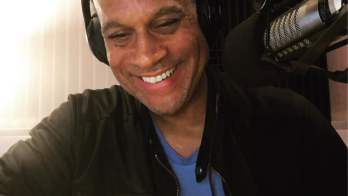according to http://www.eurweb.com

A woman is seeking $20 million in damages against Chris Rock, Sony Pictures and other producers of the April comedy “Death at a Funeral” claiming the film ripped off her 1995 book about her embarrassment at a funeral in Jamaica when she was stripped of her clothing.
Pamela Lawrence, who is representing herself in court, is also claiming racism, a plot to eradicate the female population of urban cities and allegations of inside jokes within the movie that were specifically intended to humiliate her, Reuters reports.
The 54-page complaint comes stuffed with applicable laws and case citations (although none are required in complaints), copyright registrations, numerous exhibits and, Reuters notes, a frame work intended to bypass the legal pitfalls that typically trip up those asserting idea theft in Hollywood.
Two versions of “Death at a Funeral” have come out in the past three years. The first was a British comedy directed by Frank Oz and released as a modest hit in 2007. The second – a U.S. film directed by Neil LaBute and starring Rock, Tracy Morgan and Martin Lawrence – came out earlier this year to lukewarm reviews and so-so box office. The plots of both movies center on a planned funeral service gone horribly wrong.
Pamela Lawrence claims these two films infringed her copyright on the book “Caught on Video … The Most Embarrassing Moment de Funeral, July 11, 1994, Jamaican Volume 1.” She lists similarities in incidents, characters and settings between the works.
For example, Martin Lawrence plays a writer who is traveling from L.A. to New York and complains that if he doesn’t get money, he’ll have to do a reality show. In her book, Pamela Lawrence is a writer from New York traveling to Los Angeles with problems worthy of a talk show.
Pamela Lawrence says her work (including a videotape of her real life experience) was strong enough that agents at William Morris signed her as a client. In 1998, Lawrence says she was contacted by the co-vice chairman of Sony’s Columbia TriStar to attend a “pitch meeting.” At the meeting, executives at the studio were left a copy of the book, videotape and other research materials. Later, she was allegedly told by them to “get lost, if you can afford to prove our action see you in court, we employee (sic) the best attorneys.”
According to the complaint, Lawrence responded by filing a lawsuit against them about a decade ago. In 2001, that case was allegedly settled on undisclosed terms, a fact which Lawrence claims made its way into the 2010 film as a joke about Col. Harland Sanders stealing the recipe for KFC fried chicken from a slave and then settling a claim.
In short, Lawrence goes beyond mere copyright infringement to assert breach of implied contract, unfair competition, interference with prospective economic advantage, tortious breach of confidence, deceit and fraud.
Lawrence is demanding $20 million in damages, 66% of gross profits and an injunction. Among the many defendants are Sony, Columbia Pictures, Tristar, Target Media, Screen Gems, Lawrence Malkin, Frank Oz, Chris Rock and Neil LaBute. Sony had no comment.
















